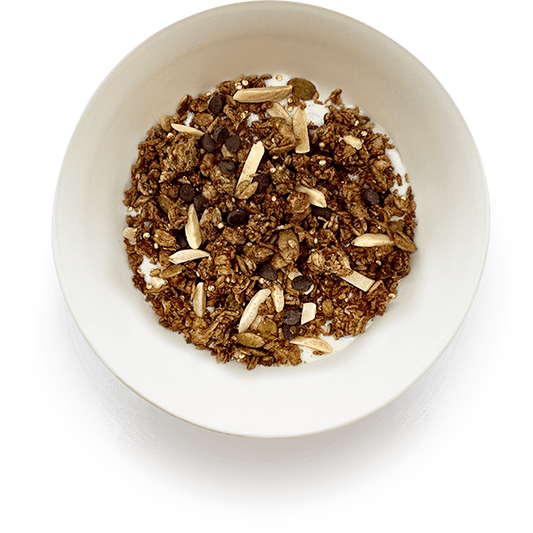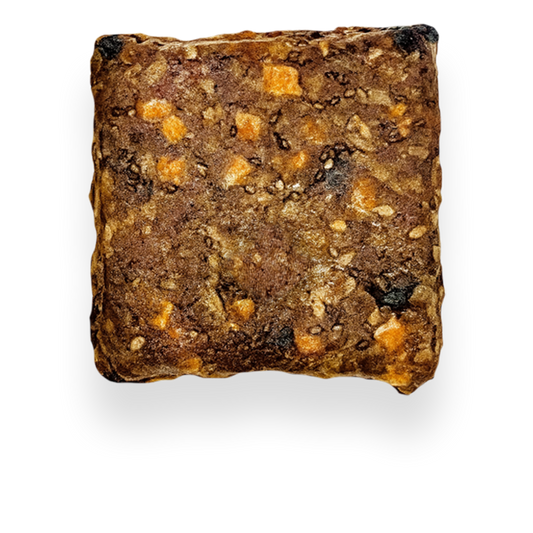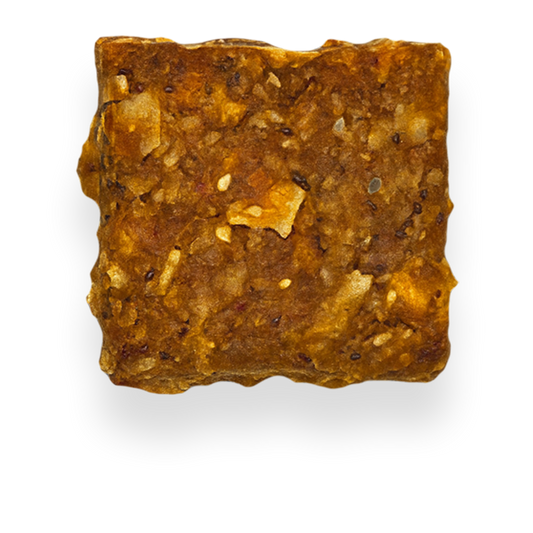Not All Carbs Are Created Equal: Worry Less About Carb Counting and More about Getting Carbs that Count
By Kristen Sunstrum, RD

Carbohydrates, otherwise known as “carbs”, often get a bad rap in the nutrition, wellness and fitness space. Despite the undeniable health benefits of following a whole food, plant-based diet [1] and their importance to athletic performance [2], the demonization of carbohydrates has people debating on whether they should swap out their fruits and vegetables for butter and bacon.
In this article, we will go back to the basics about carbohydrates, so you are armed with the best nutritional knowledge to power you through your next workout. The key to thinking about carbs is not just “how many” but “what kind.” A myopic focus on blindly counting carbs can be a big mistake if you don’t appreciate the difference between the source and kind of carbs you consume.

What are carbs anyway?
Carbohydrates are one of the three essential macronutrients in the human diet, alongside fat and protein. Carbohydrates can be divided into digestible and indigestible sugars.
Digestible sugars are found in foods like white breads, pastas, juices, milks, cookies, cakes, syrups and the sugar you stir into your coffee.
These sugars are quickly digested, rapidly increasing blood sugar and replenishing glycogen stores. They come in different forms, including:
- Glucose
- Fructose
- Galactose
- Starch
Indigestible sugars are found in the majority of plant-based foods like vegetables and fruits, whole grains, nuts and seeds.
These sugars are not digested, and instead travel to the large intestine. They help slow down the absorption of digestible sugars, stabilizing blood sugar levels. They come in different forms, including:
- Fiber
- Resistant starch
- Sugar alcohols (such as mannitol and sorbitol)
It’s important to note that many foods contain both sources of digestible and indigestible sugars, but most foods have a higher proportion of one or the other. Foods with more indigestible sugars are also known as complex carbohydrates, while foods with more digestible sugars are also known as simple carbohydrates.
How to Calculate Net Carbs?
Subtracting the total carbohydrate content from indigestible sugars allows you to calculate your net carbohydrate intake. This can be helpful if you want to manage your carbohydrate intake, or inform you on the grams of carbohydrates your body will digest to fuel your muscles.
To calculate net carbohydrates, use the following formula:
[Total Carbohydrates - Indigestible Sugars = Net Carbohydrates]
Let’s take our Creamy Spring Alfredo for example. It has 78 grams of “total carbohydrates.” It also has 20 grams of dietary fiber.


When we subtract the total carbohydrate amount (78 grams) from the indigestible sugars (20 grams from dietary fiber) we get 58 grams of net carbohydrates.
For those “counting” carbs, this 25% reduction in carbs should come as welcome news. Using the net carb approach also paints a different macro picture, as it changes the ratios between and among protein, carbs and fat, reducing the percentage of carbs overall.
For most athletes, it is recommended to consume meals with 1 - 4 grams of carbohydrates per kg of bodyweight [2].
How do Carbs Help Athletic Performance?
Carbohydrates are critical for athletic performance as they are the preferred fuel source for your cells during exercise.
Your body stores carbohydrates in the form of glycogen, both in your muscles and your liver. Muscles exclusively rely on their glycogen stores for energy during exercise. Endurance or low-intensity exercise (such as walking) will also decrease blood sugar levels, doubling-up the importance of properly fueling your body with carbohydrates.
Try these expert-tips to maximize your athletic performance with carbohydrates:
- Fuel up with meals rich in complex carbohydrates, including vegetables, fruits, whole grains, nuts and seeds throughout the day.
- Right before exercise, go for a source of simpler carbohydrates like a piece of fruit, sports gels, or gummies. Simple carbohydrates are easily digestible and will fuel your muscles quicker than complex carbohydrates.
- If you are an endurance athlete, try replenishing with simple carbohydrates at regular intervals (up to every 10 minutes) to keep blood sugar levels stable.
- After exercise, carbohydrates are just as important as protein. Carbohydrates will help improve your recovery by replenishing glycogen stores and stabilizing blood sugar levels [2].











